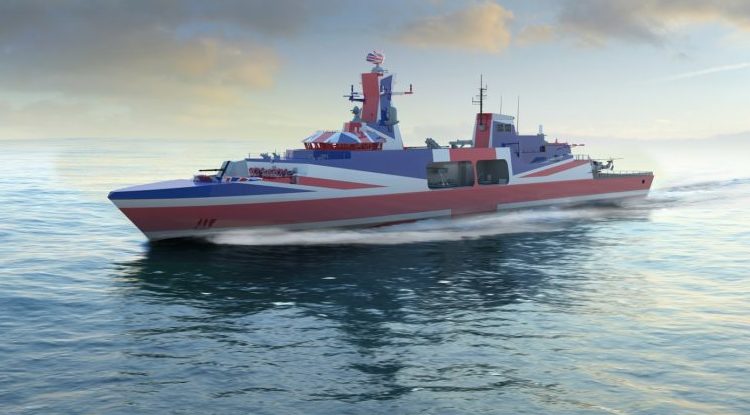Special report: UK shipbuilding strategy offers £billions
With the launch of the UK’s National Shipbuilding Strategy now imminent Liverpool city region firms Cammell Laird and Bibby Marine will be hoping for a slice of multi-billion pound contracts. Tony McDonough reports
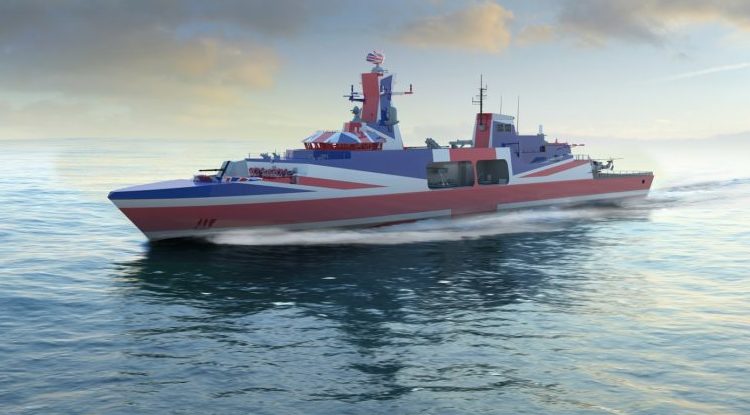
Liverpool city region maritime firms Cammell Laird and Bibby Marine are on standby for the launch of the UK Government’s National Shipbuilding Strategy, a rolling 30-year multi-billion pound programme.
Originally due to be published following the Government’s comprehensive spending review in autumn 2021, the strategy will encompass a wide range of both military and civilian vessels, including warships, ferries, research ships, workboats and patrol craft as well as new vessels for the UK Royal Fleet Auxiliary (RFA).
Worth tens of billions over the coming decades, the strategy, which will likely be announced in early March, will also include a plan to build Britain’s new national flagship vessel to replace the Royal Yacht Britannia. Prime Minister Boris Johnson says he wants it to showcase British design, engineering and low carbon technology.
Cammell Laird in Birkenhead has a strong pedigree when it comes to military vessels. It has been building them since the 19th century and is ready and willing to take a lead role in what will be a huge upgrade of the UK’s maritime capabilities, particularly for the Royal Navy in the light of the Russian invasion of Ukraine.
Bibby Marine, a division of one of Liverpool’s oldest firms Bibby Line Group, will be looking for Government backing for its WaveMaster Zero C project which aims to build a prototype for a new generation of low carbon vessels. LBN understands that building the prototype would cost around £50m.
Over the past decade Cammell Laird has established particular expertise in what is described as “block building”. That is building sections of ships that are then transported and assembled at other locations.
Between 2014 and 2016 the Birkenhead shipyard built flight deck hangers and accommodation sections for the new HMS Queen Elizabeth and HMS Prince of Wales aircraft carriers for the Ministry of Defence (MOD). That work was worth tens of millions of pounds and sustained hundreds of jobs.
LBN understands Lairds is particularly keen to secure contracts for the building of three new fleet solid support vessels for the Royal Fleet Auxiliary (RFA). The current nine ships of the RFA flotilla are civilian-crewed and provide logistical support for the Royal Navy.
Cammell Laird is well acquainted with this fleet. In 2018 the business won two 10-year contracts to provide the maintenance and upkeep of the Royal Fleet Auxiliary (RFA) vessels worth a total of £619m. It followed on from a similar deal it secured a decade earlier.
Lairds has already thrown its hat in the ring for the replacement for the new national flagship vessel which the Government hopes will be launched by 2025. In June last year Cammell Laird chief executive David McGinley said the company was the “UK’s premier ship builder” and was well equipped to deliver the project.
He added that “Cammell Laird knows what it takes to deliver vessels of vital national importance” and cited the successful delivery of the £200m RRS Sir David Attenborough polar research vessel.
In terms of prestige and the quality of the work, Cammell Laird can certainly claim the polar project was a success. However, in October 2021 LBN reported that the business required an £8.6m bailout from parent company Peel Ports after losing money on the construction of the vessel. It will be hoping to avoid a similar scenario in the future.

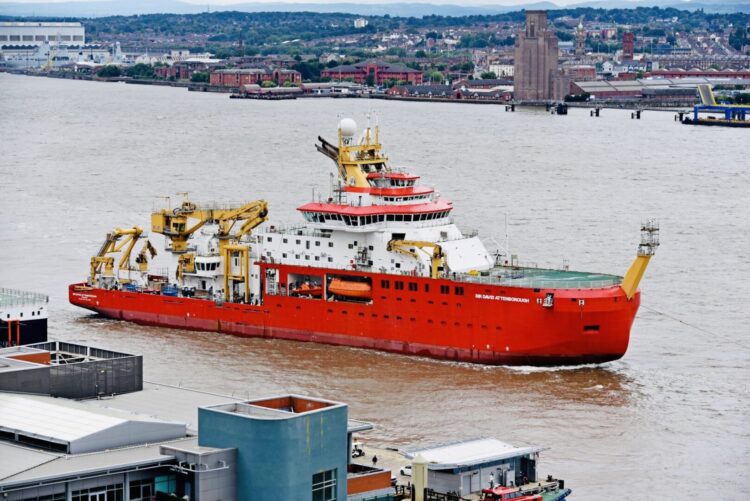
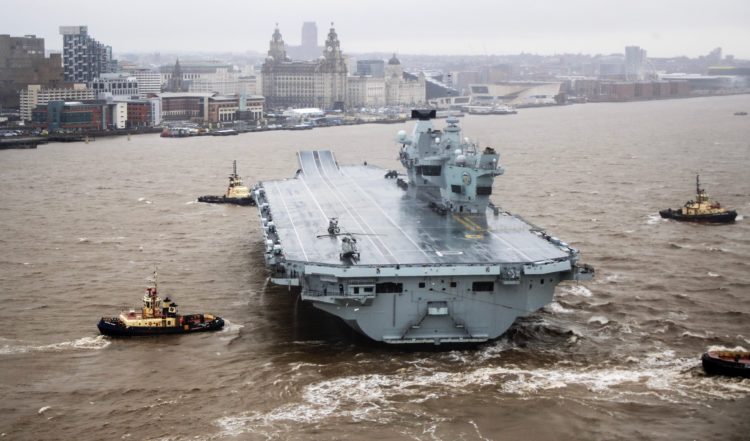
As part of its shipbuilding strategy, the Government has already handed out contracts for the first of a new generation of frigates. It wants to build at least 20 new warships of various designs.
Cammell Laird had been hoping to win deals to build five Type 31 frigates, worth £250m each. It teamed up with BAE Systems to come up with the Leander design. However, in a stop-start procurement process rival Babcock eventually secured a £1.2bn deal to build the vessels at Rosyth in Scotland. They are due in service in 2027.
BAE Systems is building eight Type 26 frigates and remaining Astute-class boats. For Cammell Laird that leaves just the MOD plan to also commission five Type 32 frigates to come into service for the Royal Navy in the early 2030s.
Although little detail is yet known about the details of its design, the MOD has said the Type 32 vessel was envisioned as a “platform for autonomous systems”. It would be general purpose in its design and would be deployed to protect UK territorial waters.
This could offer Cammell Laird the opportunity to tweak its Leander concept. When it was bidding for the Type 31 ships the company said it had lined up a 2,000-strong supply chain to support the construction.
Certainly any major contracts the yard could secure would not only be good news for the company, but also for the city region. Over the past few years Merseyside has established itself as one of the most successful maritime industry clusters in Europe.
Now worth around £4bn a year in GVA to the local economy, the profile of the diverse maritime sector has been driven higher by the work of industry body Mersey Maritime. It has worked hard to shed the image of maritime as an old-fashioned industry, putting an emphasis on digital innovation and decarbonisation.
At the centre of this strategy is the £23m Maritime Knowledge Hub (MKH). To be built in Birkenhead docklands, the MKH will provide a national base for marine engineering research and development as well as skills training and business accelerator space.
In terms of the National Shipbuilding Strategy it would certainly be a feather in the cap for the city region. The Government is placing a big emphasis on decarbonisation and new technology, as outlined in its Maritime 2050 strategy.
From the point of view of Cammell Laird and other companies in the UK’s £50bn maritime supply chain, the shipbuilding strategy will offer clear visibility of work available over the next 30 years. It would, according to Ian Waddell, General Secretary of the Confederation of Engineering and Shipbuilding Unions, create a “drumbeat of orders”.
In a 2021 Defence Command Paper, the Government explained: “A continuous pipeline will provide the sector with the confidence needed to encourage innovation, rapid adoption of technology, and investment within the supply chain to improve productivity and delivery.”
READ MORE: ‘It is critical we build a new cruise terminal on the Mersey’
UK Defence Secretary Ben Wallace has said the strategy will “drive forward a Renaissance in UK shipbuilding”. The Government has pledged the naval vessels will be UK-owned, designed and built but added it encouraged co-operation with international partners and was keen to exploit any export opportunities from the start.
The UK is already one of the largest exporters of maritime equipment and systems. Many in the industry feel the strategy could usher in a new golden age of shipbuilding backed up by a large and highly-skilled British workforce.
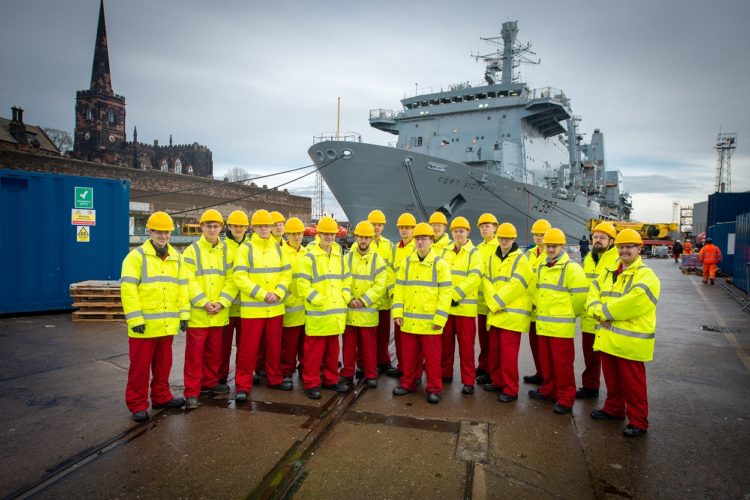
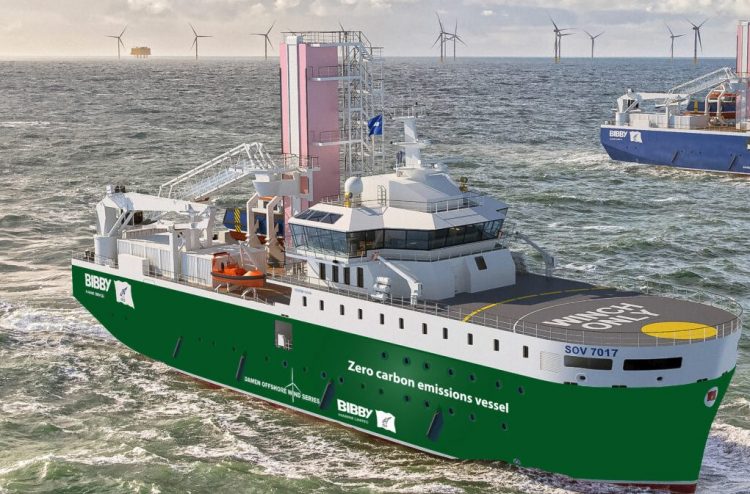
Established as a shipping company in Liverpool in 1807, Bibby Line Group is now a diverse global business operating in multiple countries around the world. Its Bibby Marine division aims to be a pioneer of low or zero carbon shipping.
Its WaveMaster Zero C is looking to develop a prototype service operation vessel (SOV) designed to support maintenance of offshore facilities such as oil and gas platforms and large wind farms, such as those in Liverpool Bay.
Bibby has a stated ambition of decarbonising all of its vessels by 2030. The WaveMaster Zero C prototype will look to assess SOVs powered by alternatives to the current marine gas oil-fuelled vessels. The alternative fuels are hydrotreated vegetable Oil (HVO), methanol, battery, ammonia, and hydrogen.
If the project were to be incorporated into the National Shipbuilding Strategy it could turn out to be a game-changer for the global maritime sector. Decarbonising shipping represents a huge technological challenge. Bibby’s project could put the UK, and Liverpool city region, at the forefront of that change.
The business says its work will “culminate in a recommendation by the project team for the best suited fuel for SOVs”. It added: “The output will then be further developed to transform it into an in-depth vessel design and optimised system with aid from vessel architects and classification societies.
“It is a prime ambition of Bibby Marine to operate a zero-emission SOV before 2030. This is only the beginning of our zero-emission journey but it has already seen itself become central to our strategy and affects the business decisions that we make daily.”

